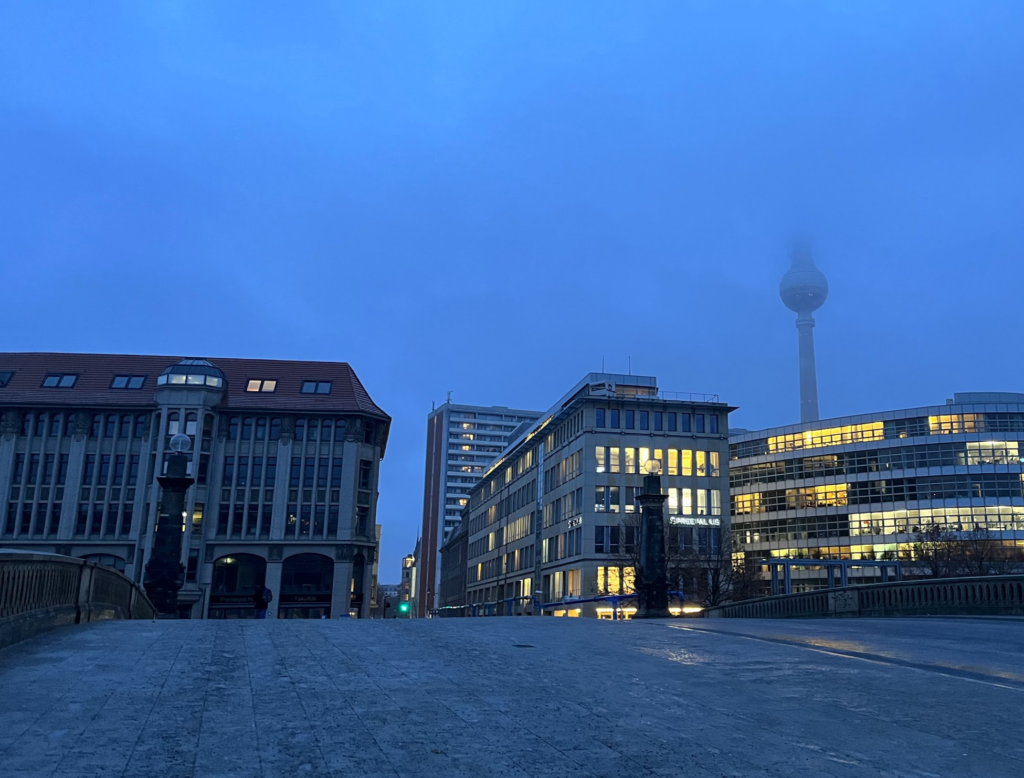Alongside leading international researchers from the fields of biblical studies, classics, Egyptology, Iranistics, Ethiopian studies, and Ancient History, DEMBIB PI Bernd Schipper and researcher Petra Schmidtkunz recently presented their research on Judean literature in Egyptian contexts at the conference “(Anti-)Apocalypticism throughout Antiquity,” organized by the University of Zurich and held at the Monte Verità Conference Centre in Ascona, Switzerland from July 16th to 19th. Focusing on apocalyptic thinking, . Our researches presented their state-of-the-art research w
Bernd Schipper’s paper, “Apocalypticism in Ancient Egypt? – The Case of Prophetic Literature from the Ptolemaic Period,” started with an analysis of an Aramaic prophetic text from 5th c. Egypt (pBritish Library CVI) and its place within the Egyptian tradition, called “The Demise of Righteousness” by scholars (after Bezalel Porten). This was followed by a discussion about the so called “apocalyptic” texts from Persian and Ptolemaic Egypt, such as Oracle of the Lamb, the Oracle of the Potter, and a prophetic text from Tebtunis recently edited by Joachim Quack. In the third and final part, he inquired about possible reasons behind the shift of paradigm in Egyptian prophetic literature – from ex eventu prophecies to predictions of a far distant future.
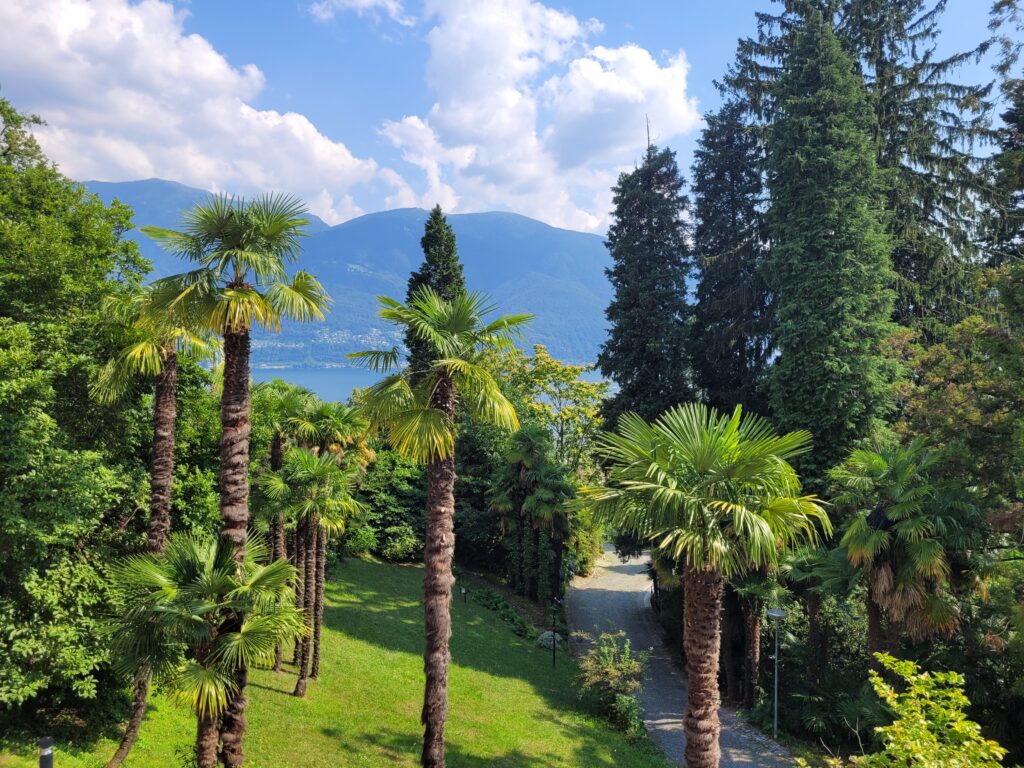
(photo: Petra Schmidtkunz)
Petra Schmidtkunz’s paper, entitled “‘When the snake does not bite’: How the notions of an ideal Urzeit and Endzeit belong together and what this tells us about apocalypticism,” contended that “apocalypticism” should be treated as a scribal technique, i.e., one specific way of dealing with literary traditions, rather than a “theme” or “worldview” in itself. She illustrated this by presenting four textual examples from the Hebrew Bible and Ancient Egypt: two from the book of Isaiah (11:6-9; 65:25), and two from Ptolemaic-period inscriptions at the Egyptian temples, Edfu (Chassinat, Edfou V, 85) and Karnak (Urk. VIII, 81).
These texts all depict a golden age completely different from the present, but related either to an ideal past, or to an ideal future. The ideal world is portrayed as a perfect harmony of humans and animals, and it is conditional upon the reigning of an ideal ruler: in Egypt, every new pharaoh guarantees that the order of the world is kept according to the ideals of the past golden age. In the biblical book of Isaiah, however, a golden age renaissance is only expected with the advent of a new divinely-sanctioned but non-royal king (Isa 11), or when YHWH takes up rule himself.
Petra argues that the existence of these similar scenarios in the two different cultures points to an essential dynamic underlying the literary history of ancient Egyptian and Israelite-Judaean cultures: the scribal invention of an ideal Urzeit and Endzeit, twin notions which presuppose a substantial amount of textual traditions and a clear sense of intellectual pre-eminence on the part of those keeping the traditions. However, an “apocalyptic” course of events, including revelation of a divine plan and cataclysmic changes in nature, is but one way of how these developments are imagined to come about. Petra thus suggests that historical thinking includes idealizing with regard to both future and past, with “apocalypticism” being only one form of mediating between the present and the idealized future.
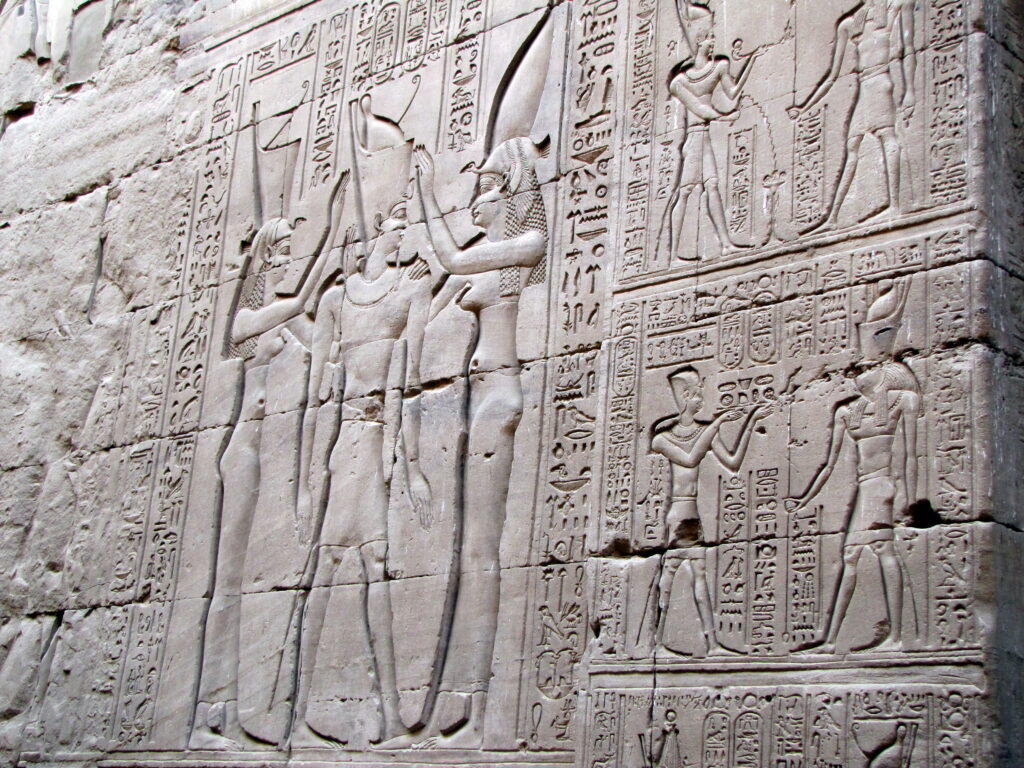

Wrapping up a two-month research trip to Berlin, David M. Carr, Professor of Hebrew Bible at Union Theological Seminary, New York (website) sat down with Joey Cross of the DEMBIB project for a brief interview about his work. Joey also took advantage of the rich overlap between David’s current research on the “scroll approach” to ancient Judean literature (see here and here) and the DEMBIB project to seek out some wisdom from him on what lies ahead.
Listen here!
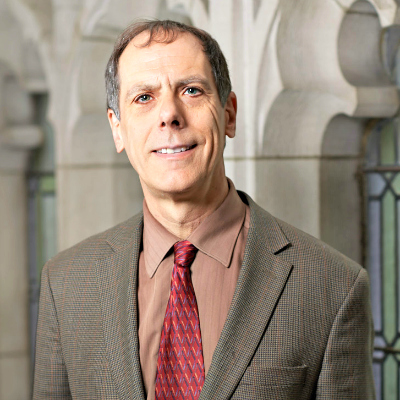

Petra Schmidtkunz recently sat down for a short interview with Joey Cross, introducing herself (not to Joey—they are colleagues—to you!), explaining her background in Hebrew Bible, and giving some fascinating glimpses into her research project for DEMBIB on the concept of rule in the book of Isaiah. Listen below or on Soundcloud!
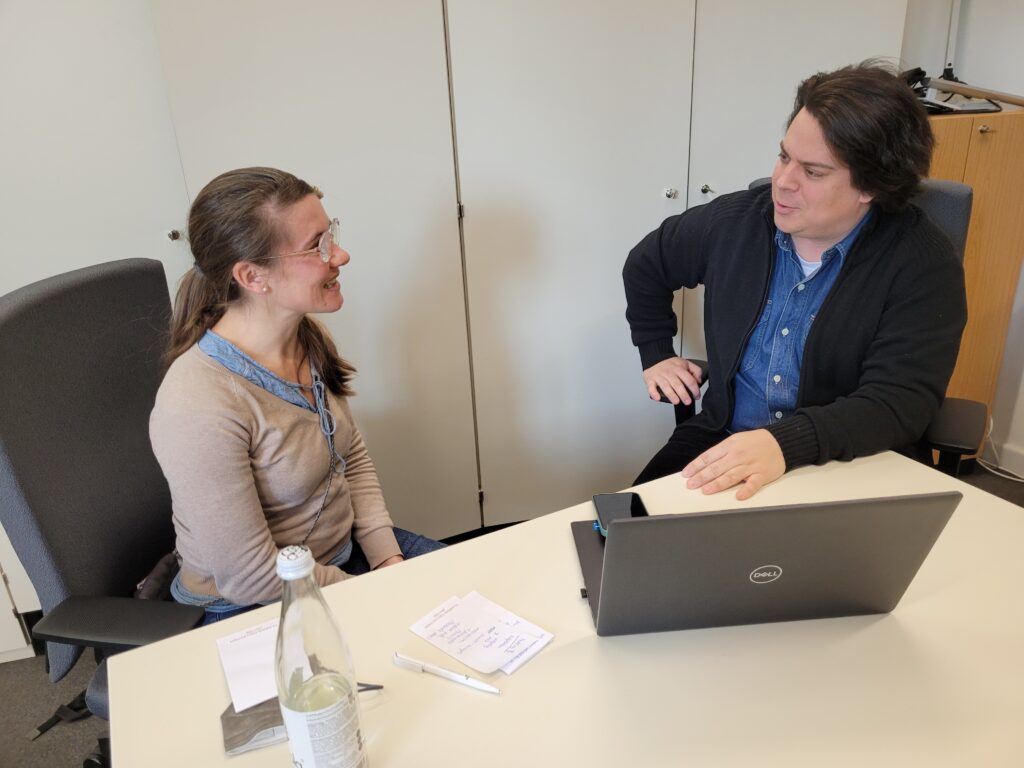
Look for us at the 2023 European Association of Biblical Studies Annual Conference!
Three team members will be presenting their research at a session for the research unit “Comparing Ancient Chronographic Historiographies from Mesopotamia, Egypt, Judah, and Greece in the Persian and Early Hellenistic Periods.”
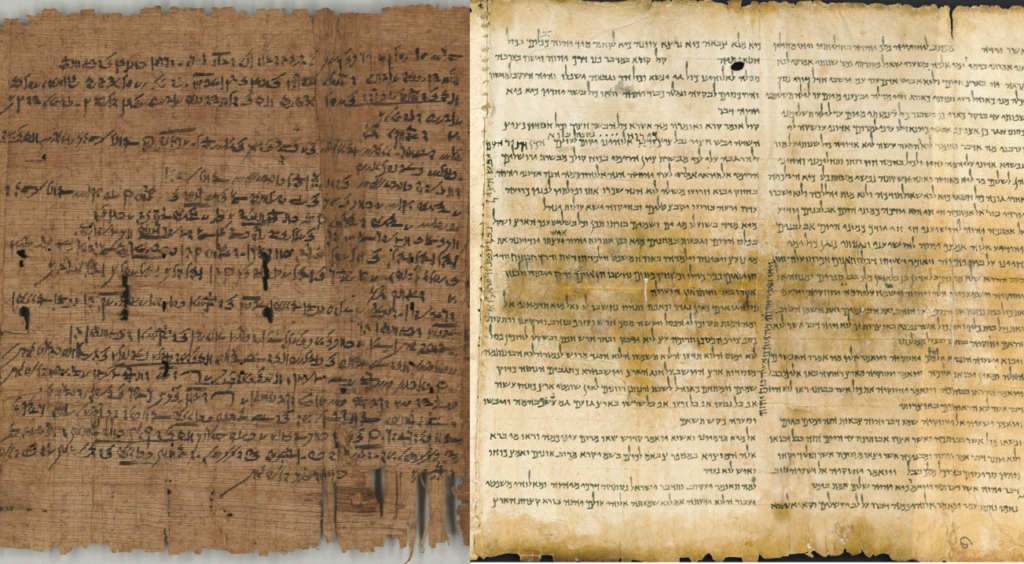
Petra Schmidtkunz’s paper, “‘And I will take you to a land like your own land…’ (2Kgs 18:32/Isa 36:17),” takes a new approach to the parallel historical accounts of 2 Kings 18-20 and Isaiah 36-39, reading them in their wider contexts as compiled literature of the post-exilic period and eliciting the ways that the notion of “the land” connotes different understandings of rule. This bears closely on an important question in the DEMBIB research program: how the world-historical events of the Assyrian and Persian periods led to scribes conceiving of future salvation in new ways. Here is the full abstract:
2Kgs 18:13–20:19/Isa 36–39 recount interactions between foreign rulers, the Judean king Hezekijah and the prophet Isaiah against the backdrop of the Assyrian invasion of Judah under Sennacherib and the looming conquest of Jerusalem by the Babylonians. Although large portions of the text cycle are identical in the two books, the parallel versions form part of different interpretations of history. This is evident in the way the texts in question are framed literarily, including different connotations of the land. In the context of Kgs, the Assyrian invasion brings an end to the Israelite monarchy (2Kgs 17) but also ushers in the decline of Judah, leading up to exile, which even Hezekijah’s righteous successor Josiah cannot prevent (2Kgs 21–25). The Hezekijah-Isaiah cycle thus serves to explain the course of history, illustrating how independent rule and control over the land are dependent on the people’s faithful relationship to YHWH. Notably, in this scenario, the land remains in human hands. 2Kgs presents dealings between different nations (Assur, Israel, Judah, Babylon) where rule can be seized by foreign kings. In Isa, the Assyrian invasion also threatens Judah’s traditional monarchy and hints to its end (see Isa 7.34–35) but through this crisis, the stage is opened up for new, more auspicious forms of rule: the Babylonian overlords are not mentioned, the Persian king Cyrus is presented as YHWH’s governor and the future will see YHWH rule directly over his people (Isa 40ff). It is understood that YHWH’s people and land do not fall to any human ruler but remain subject to his divine will alone. Sennacherib’s claim “I will take you to a land like your own land” (2Kgs 18:32/Isa 36:17) turns out to be erroneous but for different reasons in the two books: in 2Kgs, faithful Hezekijah shows how not to fall for the presumptuousness of the foreign king while in Isa, YHWH himself proves that neither the land of his people nor its qualities may be claimed by a foreign power.
Two other team members, José Rafael Saade and Joseph Cross, will also co-present a paper in the same research unit at the 2023 EABS meeting. Taking a close look at an allegorical poem about a master gardener in the enigmatic Demotic Chronicle, José Rafael and Joseph will read this complex and multivalent text closely and argue that its author adapted a prominent image associated with Persian rule in order to present a critical picture of the 30th Dynasty pharaoh Nectanebes, depicting Egypt as a “paradise lost.”
Here is the abstract:
This paper will study a passage of the so-called Demotic Chronicle (Paris, pBN 215) as an important textual source for studying new conceptualizations of territorial space in the post-Persian era. Dating from the 3rd-century BCE, the text presents a series of oracular statements followed by an exegetical commentary, and—although its nature and purpose are still largely obscure—it alludes to the native Egyptian rulers between the first and second Persian dominations (401-343 BCE) and presents a prophesy of a savior king who would deliver Egypt from the foreign invaders. In the passage under study (col. x+V.15-20), a master gardener is urged to protect his garden against a migrating desert flock. A commentary within the text equates the gardener with pharaoh Nectanebes, and the invading flocks with the Persians, making the text an explicit historical allegory.
Building on the wordplay between the Demotic kꜣmy “gardener” and kmy “Egypt,” this passage connects to the widespread motif of the Persian garden—Old Persian paridaidā “paradise.” We will argue that the use of this motif in the text is not merely decorative (cf. Esther 1:5) but represents a meaningful adaptation in its Egyptian context. In this retooling of the motif, the ideological significance of the garden as the representation of the orderly rule of the Persian king becomes a device for criticizing Nectanebes’ rule. Moreover, if the motif of paridaidā can represent—as Bruce Lincoln argues—an ideal space from a past golden age which can be reattained through a new kind of order, the identification of Egypt as a “paradise lost” would represent a fascinating subaltern adaptation of a hegemonic idea, making the text inwardly subversive. The Demotic use of the garden motif attests to the potency of the Persian paridaidā both as a motif in a textual sense and as a conceptualization of space that can provoke complex ideation on the part of a literary subaltern voice which is both historicizing and future-oriented.
We hope to see you in Syracuse and online!
Just published in open access in Die Welt des Orients (52:2, December 2022) by team researcher Robert Kade: “The Many Paths into the Chamber of Darkness,” a review article about the newest volume in the critical edition of the Demotic Book of Thoth, which Robert calls “the most important text on the initiation into the scribal profession that has survived from ancient Egypt.” Read it here!
See especially pp. 293-297, where Robert considers the relevance of the Book of Thoth for the study of biblical wisdom literature.
Here’s the abstract for the article:
In 2021 Richard Jasnow and Karl-Theodor Zauzich concluded their 34 years long publication project of an important initiatory composition known from Ancient Egypt, the so-called Book of Thoth or (by its Egyptian title) Ritual for Entering the Chamber of Darkness. But even though the text is now known for more than three decades, the amount of critical reception is still very minor. This article can be read primarily as a review to the final volume of their edition, the Book of Thoth II, which offers an updated transliteration and translation alongside facsimiles of the manuscripts and a set of interpreting essays in two volumes. It is shown that it can only be efficiently used alongside the older publications, therefore a part of the study centers on the complicated history of research and its critical evaluation. In addition to that, this article aims to contextualize the potential for other disciplines to recognize and work with this exceptional composition. This is demonstrated by three case studies, viewing the text through the perspective of similar compositions known from the Ancient Near East, Ancient Greek and Ancient Israel. As a consequence, interdisciplinary researchers are encouraged, by using the now completed edition, to discover their own paths into the chamber of darkness.
Article DOI: https://doi.org/10.13109/wdor.2022.52.2.271

Thank you for stopping by! This is the new project blog of the DEMBIB project, funded by the European Research Council and housed at the Theologische Fakultät of the Humboldt-Universität zu Berlin. We are an international team of Egyptologists and biblical scholars researching the literature of Ancient Egypt and of the Hebrew Bible in the Persian and Hellenistic periods, and our goal is to offer a new paradigm for understanding the transformation of textual traditions into complex forms of literature in both of these cultures. You can read all about it on our project website.
In the coming weeks, we’ll be introducing our researchers and our PI, Prof. Bernd U. Schipper, and will be sharing insights into our ongoing research and the texts we are studying, interviews with visiting scholars, and more. In the meantime, make sure to follow us on Instagram and Twitter.
